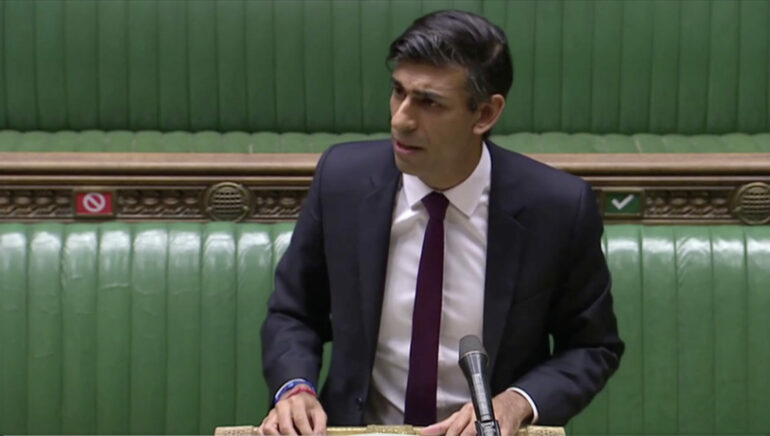Government failure to regulate landlords has discouraged nearly half of private renters from applying for grants to insulate their homes to improve energy efficiency, research from Generation Rent has found.
Fears of rent rises, evictions, or refusal from the landlord, put off 48% of private renters from applying for grants which would improve their home’s energy efficiency and cut their bills.
This rose to 53% for renters getting housing benefit or Universal Credit, who were already suffering most from fuel poverty.
Following Prime Minister Rishi Sunak’s (pictured) cancellation of plans to raise minimum energy efficiency standards (MEES) two weeks ago, landlords have no obligation to agree to insulation works, even if they are funded by Government grants.
Three in 10 tenants were discouraged from applying for grants because of the expectation that their landlord would refuse them.
Generation Rent warned that the lack of a ‘stick’ would undermine the “big Government grants” that Sunak held up as a ‘carrot’ for energy efficiency in his speech on 20th September.
One in four private renter households was found to be in fuel poverty, higher than in social housing and owner-occupation.
Schemes like the Energy Company Obligation provide grants to improve homes’ energy efficiency, and tend to be targeted at people at risk of fuel poverty.
In Autumn 2020, the Government consulted on uprating MEES on new tenancies to EPC Band C in 2025, but made no further announcement until the recent speech.
Think tank E3G estimated that the policy would have saved private renters an average of £570 per household per year, total savings of £1.75bn.
In its survey of private renters in July 2023, Generation Rent asked 914 respondents whose homes were not already energy efficient what would discourage them from applying for grants.
29% said they thought their landlord would say no – there was no difference in this proportion when broken down by benefit status.
A similar number (28%) thought their landlord would raise the rent, which would cancel out the energy savings, rising to 32% among benefit recipients.
17% said they thought their landlord would sell the property once it was improved, rising to 19% among benefit recipients.
Almost half (48%) of respondents selected at least one of these responses, rising to 53% of benefit recipients.
In addition, 38% were unaware of what grants were available, and 22% were unaware of what improvements their home needed.
Nearly half of respondents (47%) selected at least one of these responses.
Generation Rent called on all parties to commit to raising MEES to Band C as soon as practical, while tightening protections for tenants around evictions and rents.
Dan Wilson Craw, deputy chief executive of Generation Rent, said: “Tenants in draughty homes currently pay hundreds of pounds more per year than they would if their home was insulated properly.
“The Government has made funding available to lift households out of fuel poverty but it won’t reach enough people if landlords don’t have a clear responsibility to allow improvements.
“There is more the Government could have done to assure tenants that they would benefit from green grants.
“In recognition of the tight timeline, the Government could have delayed the new standards’ start date by a couple of years, but by scrapping new regulations entirely the government has made the situation worse.
“This cruel, disproportionate and reckless decision means renters will be living in cold homes that make them poorer and sicker for many more years to come.”



